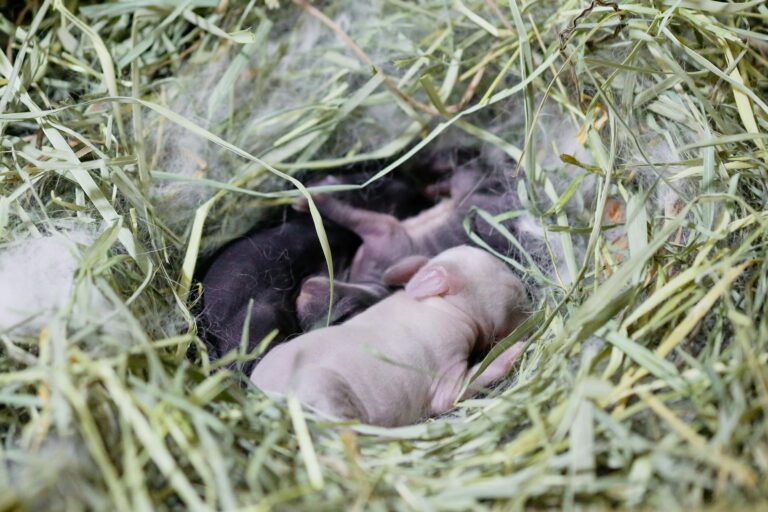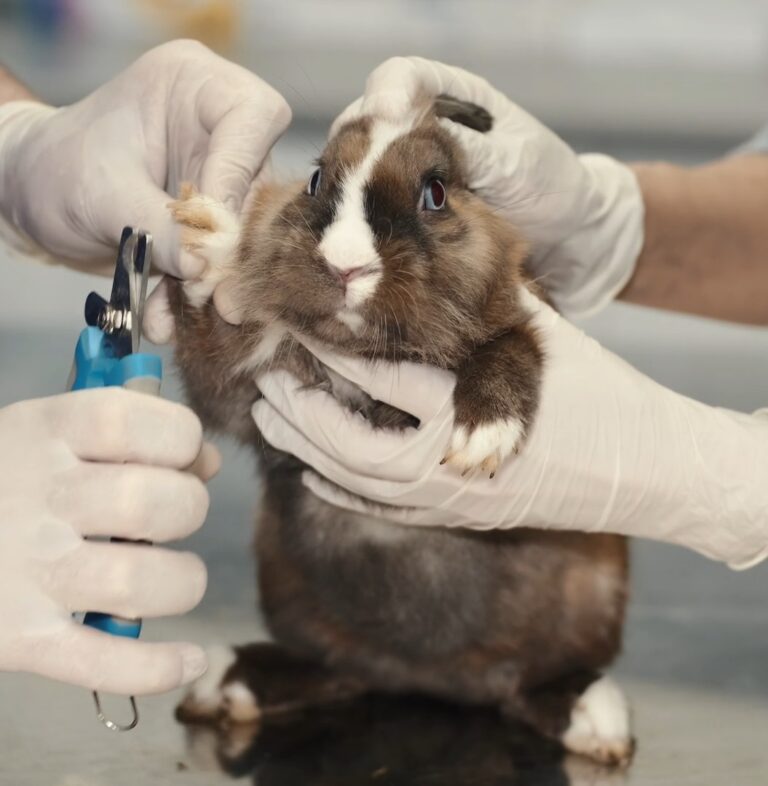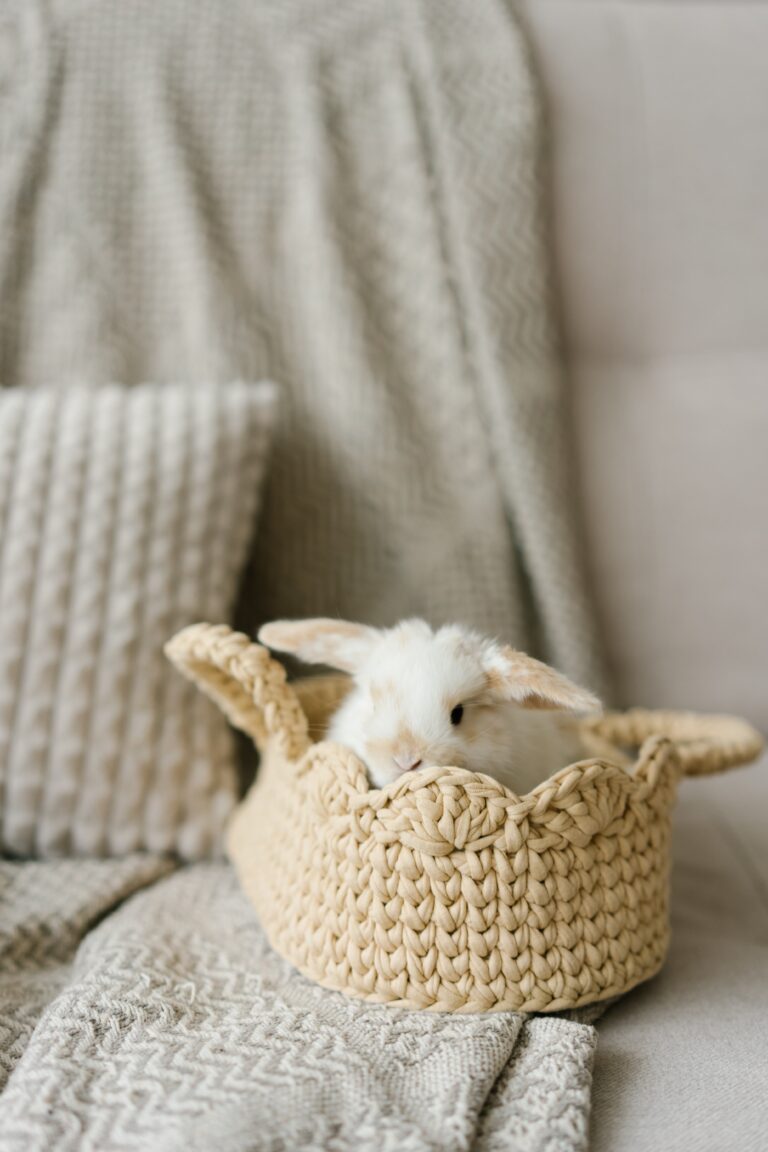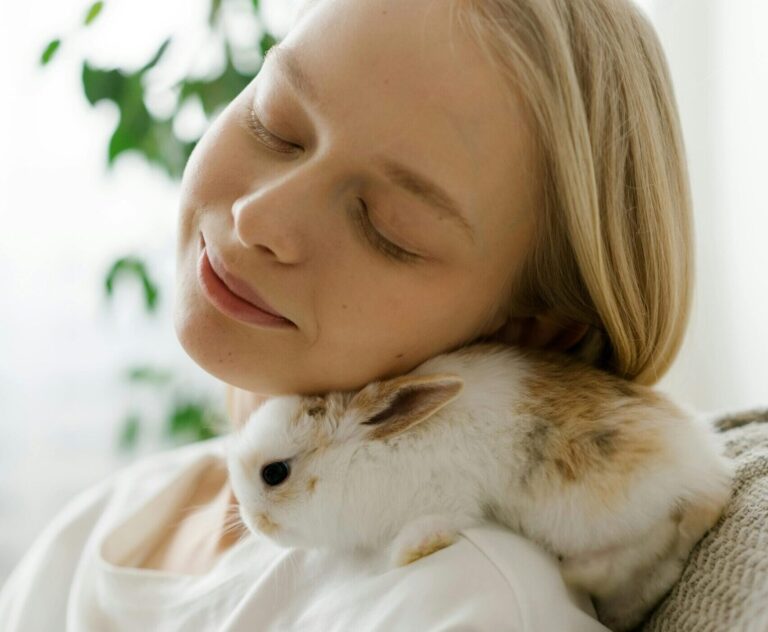Pet Rabbits: 10 Common Myths
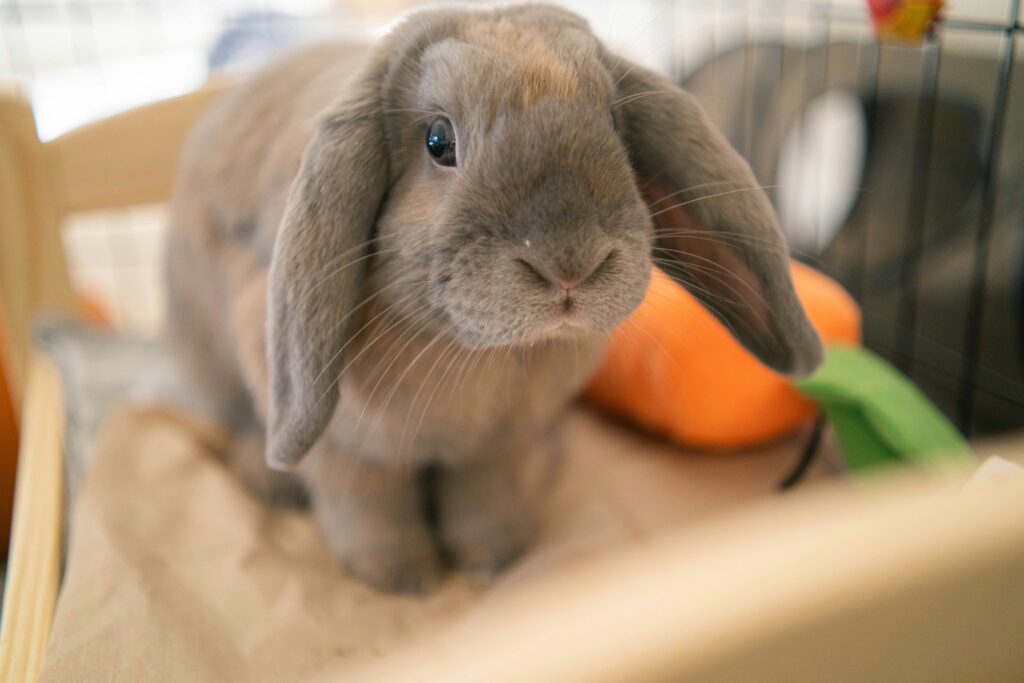
Rabbits, with their adorable appearance and gentle demeanor, have captured the hearts of animal lovers worldwide! However, despite their popularity as pets, there are many misconceptions and myths surrounding these furry companions.
In this guide, we’ll debunk some of the most common myths about pet rabbits, shedding light on the truth behind these misconceptions and providing valuable insights into responsible rabbit care.
Myth 1: Rabbits are Low-Maintenance Pets
One of the most pervasive myths about pet rabbits is that they are low-maintenance animals that require minimal care. In reality, rabbits require a significant commitment in terms of time, effort, and resources. They need a spacious and enriching environment, a balanced diet, regular grooming, and plenty of social interaction to thrive. Neglecting these needs can lead to health problems and behavioral issues.
Myth 2: Rabbits are Ideal Pets for Children
While rabbits can make wonderful companions for families, they are not necessarily ideal pets for young children. Rabbits are delicate animals that require gentle handling and supervision, which may be challenging for young children to understand and practice. Additionally, rabbits have specific care needs that children may not be able to meet independently, such as providing a proper diet and cleaning their living space.
Myth 3: Rabbits Only Need to Eat Pellets
There are a lot of myths about proper diet for pet rabbits, one being that they can live happily on pellets alone. A proper diet for pet rabbits is unlimited Timothy hay with a small percentage of alfalfa mixed in, high quality pellets, small amounts of rabbit safe vegetables (no iceberg lettuce!), and occasional fruits such as banana, papaya, and pineapple as a treat. This balanced diet will keep you rabbit happy and healthy for many years to come!
Myth 4: Rabbits Can Eat Only Carrots
The image of rabbits munching on carrots is deeply ingrained in popular culture, but in reality, carrots should only be a small part of a rabbit’s diet! While carrots are safe for rabbits to eat in moderation, they are high in sugar and should be considered a treat rather than a staple food.
Myth 5: Rabbits are Nocturnal Animals
Another common misconception is that rabbits are nocturnal animals that are most active at night. In fact, rabbits are crepuscular, which means they are most active during the dawn and dusk hours. This natural behavior pattern is influenced by their wild ancestors’ habits and allows rabbits to forage for food and socialize during the cooler, low-light periods of the day.
Myth 6: Rabbits Don’t Need Veterinary Care
Some people believe that rabbits are hardy animals that rarely need to see a veterinarian. However, rabbits are susceptible to a variety of health issues, including dental problems, gastrointestinal stasis, respiratory infections, and parasitic infestations. Routine veterinary check-ups are essential for monitoring your rabbit’s health, detecting potential issues early, and providing preventive care, such as vaccinations and parasite control.
Myth 7: Rabbits Don’t Need Exercise
Another misconception is that rabbits don’t need regular exercise because they spend most of their time in cages or hutches. In reality, rabbits are active animals that require daily exercise to maintain their physical and mental well-being! Providing opportunities for your rabbit to hop, run, and explore outside of their enclosure is essential for preventing obesity, promoting healthy digestion, and preventing boredom.
Myth 8: Rabbits Can Safely Eat Any Plants
Contrary to popular belief, not all plants are safe for rabbits to eat. While rabbits are herbivores and primarily eat hay, vegetables, and some fruits, there are many plants that are toxic or harmful to them. Common garden plants like azaleas, lilies, and daffodils, as well as household plants like ivy and philodendron, can be poisonous to rabbits if ingested. It’s essential for rabbit owners to research and ensure that any plants in their rabbit’s environment are safe for consumption.
Myth 9: Rabbits are Easy to Breed
Breeding rabbits may seem like a straightforward process, but it requires careful planning, knowledge, and responsible breeding practices. Breeding rabbits without understanding genetics or proper husbandry practices can lead to health issues in both the parent rabbits and their offspring. Additionally, overbreeding contributes to the problem of rabbit overpopulation and the high number of rabbits in shelters and rescues. Before considering breeding rabbits, prospective breeders should research and ensure they have the resources and expertise to do so responsibly.
Myth 10: Rabbits Don’t Need Socialization or Interaction
While rabbits may be less demanding in terms of social interaction compared to some other pets, they still benefit greatly from socialization and companionship. Rabbits are social animals that thrive in the company of their own kind and human caregivers. Lack of socialization and interaction can lead to loneliness, boredom, and even depression in rabbits. Providing opportunities for your rabbit to interact with you, other rabbits, or even small pets like guinea pigs can enrich their lives and improve their overall well-being.
Conclusion
Dispelling common myths about pet rabbits is essential for promoting responsible rabbit ownership and ensuring the well-being of these beloved animals.
By understanding the truth behind these misconceptions and educating ourselves and others about proper rabbit care, we can create a better world for pet rabbits everywhere!
Whether you’re a seasoned rabbit owner or considering adding a rabbit to your family, remember to prioritize the health, happiness, and welfare of these wonderful companions.


